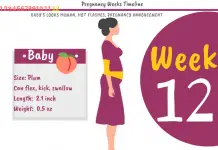Ectopic pregnancy occurs when the fertilized egg grows outside the uterus instead of inside. The Office on Women’s Health OWH in US Department of Health and Human Services defines Ectopic Pregnancy as a pregnancy that is not in uterus 1
Nost of the time such pregnancies happen in the fallopian tube. Hence, Ectopic pregnancy is also called Tubal pregnancy.
What is an ectopic pregnancy?
- Scientifically, tubal pregnancy is an Ectopic pregnancy.
- For conception to occur, an egg released from the ovaries into the fallopian tubes where it stays for 24 hours waits for a sperm to fertilize it. Fertilized egg remains in the fallopian tubes for 3-4 days and then makes its way to the uterus.
- Fertilized egg embeds itself into the lining of the uterus and continues to grow there.
- But if the process of implantation occurs elsewhere like in your fallopian tubes, then you have an Ectopic pregnancy.
- A Tubal pregnancy occurs in one out of 50 pregnancies. In some cases, the egg implants in the cervix, ovary or belly.

Terms Related To Ectopic pregnancy?
- Chemical pregnancy: A chemical pregnancy or miscarriage is the result of ectopic pregnancy. It is one of the causes of chemical pregnancy.
- Extrauterine pregnancy: The embryo implants in the tube outside the uterus. Thus, an Ectopic pregnancy is an extra-uterine pregnancy.
- Tubal pregnancy: Tubal pregnancy is the implantation of baby’s cells in Fallopian tubes.
- Hormonal pregnancy: Again as in the case of chemical pregnancy, Ectopic pregnancy has all pregnancy hormones.
What to do to treat ectopic pregnancy?
These cases require immediate attention. Sadly, there is no way to save an ectopic pregnancy. Doctors have to end it there by surgical processes. Otherwise, the fetus will keep growing, and the tubes will burst. It can lead to profuse bleeding that can potentially kill you.
What causes an ectopic pregnancy?
An ectopic pregnancy occurs because of damaged Fallopian tubes. Due to this the egg is not able to travel into the uterus and implants itself in the Fallopian tubes.
Things that can cause tubal pregnancy by damaging your fallopian tubes are:
- Smoking: The more you smoke, the more you are at risk of having an ectopic pregnancy. Smoking disturbs the pregnancy processes and thus can cause this problem.
- Endometriosis: Endometriosis leads to the formation of scar tissue in or near the Fallopian tubes. Endometriosis is the invasion of other organs by uterine tissues. It leads to the formation of sessile tumors. They are endometrial polyps. Endometrial polyps can also cause ectopic pregnancy.
- Pelvic Inflammatory Disease (PID): Inflammation and infection in the uterus and surrounding areas can cause ectopic pregnancy. Infection can damage the walls and lining of the uterus. If the lining of the uterus is not sufficient enough to be able to sustain a pregnancy, then the embryo will implant in the tubes causing Tubal pregnancy.
- Surgery: Any surgical procedure of the Fallopian tubes can cause ectopic pregnancy. If you undergo any operation of the Fallopian tubes and even if the doctor was an expert there are chances that you get scars. These can even hamper your fertility. Similarly, uterine scars from any surgery or abortion procedures can cause Tubal pregnancy.
- In vitro fertilization: Fertility therapies involve the use of hormone-boosting injections. They can alter normal reproductive processes and cause pregnancy abnormalities. One of these abnormalities is an ectopic pregnancy.
- Birth defects: Birth defects in the developing baby might lead to Tubal pregnancy. If the baby is not developing normally, it can implant in the wrong place.
- Genetic abnormalities: Chromosome faults can lead to first term miscarriages. Similarly, they can cause other complications like Tubal pregnancy.
- Hormonal imbalances: If your body is not producing the right pregnancy hormones then it can cause ectopic pregnancy. The pregnancy hormones such as progesterone sustain the pregnancy. They build up the vaginal blood vessels and are responsible for preparing it for pregnancy.
Ectopic Pregnancy Risk Factors
- When mothers over the age of 34-45 conceive.
- The mothers who previously had an ectopic pregnancy.
- A mother suffering a Pelvic Inflammatory Disorder (PID).
- Women who underwent several induced abortions.
- Women who had a pelvic or abdominal surgery.
- Conceiving after removal of an IUD or tubectomy
- Women who smoke a lot.
- Females who are undergoing fertility treatments like in vitro fertilization.
- Patients with endometriosis.
- Women with a history of sexually transmitted diseases like chlamydia and gonorrhea
- Women whose mother took the drug DES during pregnancy.
Ectopic Pregnancy Symptoms
The symptoms of start to appear within the first few weeks of pregnancy. They are similar to the ones that a lady experiences during normal pregnancy.
Pelvic pain and vaginal bleeding are the first symptoms one experiences. Pelvic pain starts from one side of the belly and then radiates to the entire pelvic region. The pain is sharp and varies in intensity.
Other symptoms of tubal pregnancy include:
- Nausea and vomiting
- Abdominal cramps
- Fatigue
- Missed periods
- Sore breasts
- Dizziness and fainting
- Lightheadedness
- Rectal pressure
How is an ectopic pregnancy diagnosed?
A urine hCG test can help diagnose an ectopic pregnancy. If you continue getting a false pregnancy test, it may be a sign of Tubal pregnancy.
Your doctor will do the following:
- Pelvic exam for diagnosing tubal pregnancy: He will check your uterus and will look for any growth or tenderness on your belly.
- Blood test for diagnosing tubal pregnancy: It quantifies the level of the hormone Human Chorionic Gonadotropin (HCG). Doctors repeat the test two days later as well because, in normal pregnancy, the level of the hormone HCG doubles every day. So if the level is extremely low, it might indicate an ectopic pregnancy. It also tells the gestational age. Gestational age is the time passed from the day of conception.
- An Ultrasound for diagnosing tubal pregnancy: It helps doctors to see what is going on inside your belly.
Ectopic Pregnancy Treatment
Doctors treat ectopic pregnancy through medicine and surgery. If a lot of damage has not occurred, then the doctor opts for medicine. One or two shots of methotrexate and it ends the pregnancy right away. But treating with methotrexate has a lot of side effects. You will have to keep visiting the doctor and take routine blood tests.
But if you are too many weeks into the pregnancy, then surgery is a better and safer option. The surgery for treating tubal pregnancy is laparoscopy. The doctor will make small cuts in your belly (incisions), but for emergency surgeries, the doctor makes larger cuts.
What to do after an ectopic pregnancy?
- Losing a baby is always hard, so the best way to deal with it is to let yourself feel pain and give yourself adequate time to grieve.
- Try to do new things to take your mind off it.
- You may face acute depression for a few weeks. But if it lasts for more than three weeks, speak to your doctor about it. There is no shame in getting the necessary aid.
Having an ectopic pregnancy does not mean you can never have a healthy pregnancy. You have to stay vigilant in the next pregnancies and get your blood tests done on time to avoid such circumstances.
You must inform your doctor that you had an ectopic pregnancy previously.
All good things are on their way don’t lose hope!



![First Trimester Of Pregnancy: Weeks 1 To 13 First Trimester [Week 1- Week 13 Overview]](https://www.pregnanteve.com/wp-content/uploads/2019/07/first-trimester-of-pregnancy-218x150.jpg)





